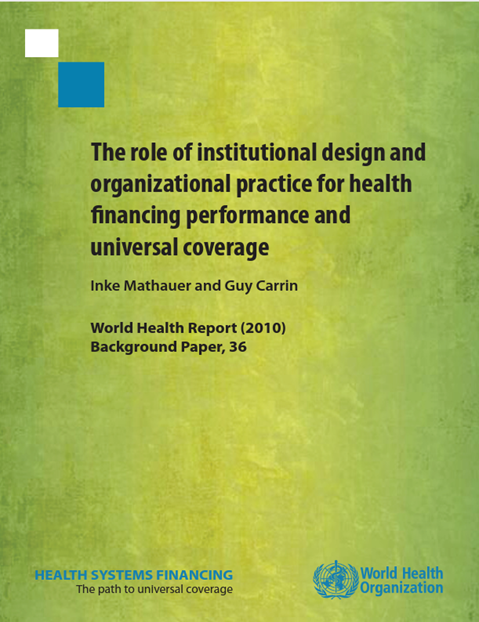The role of institutional design and organizational practice for health financing performance and universal coverage
Background Paper, 36

Overview
Common to many countries is their concern to establish a health financing system that enables them to move towards universal coverage - defined by WHO as access to key promotive, preventive, curative and rehabilitative health interventions for all at an affordable cost, thereby achieving equity in access (WHO, 2005). This is particularly the case for low- and middle income countries, in light of their heavy reliance on out-of-pocket (OOP) health care expenditure, which represents an important financial burden to households. The challenge is how to improve a health financing system in order to move towards and achieve universal coverage as an overall desired policy goal.
This report is part of a series, The World Health Report 2010 Background Papers, which were written to inform the process of developing the key messages of the World Health Report 2010: Health systems financing: The path to universal coverage.
